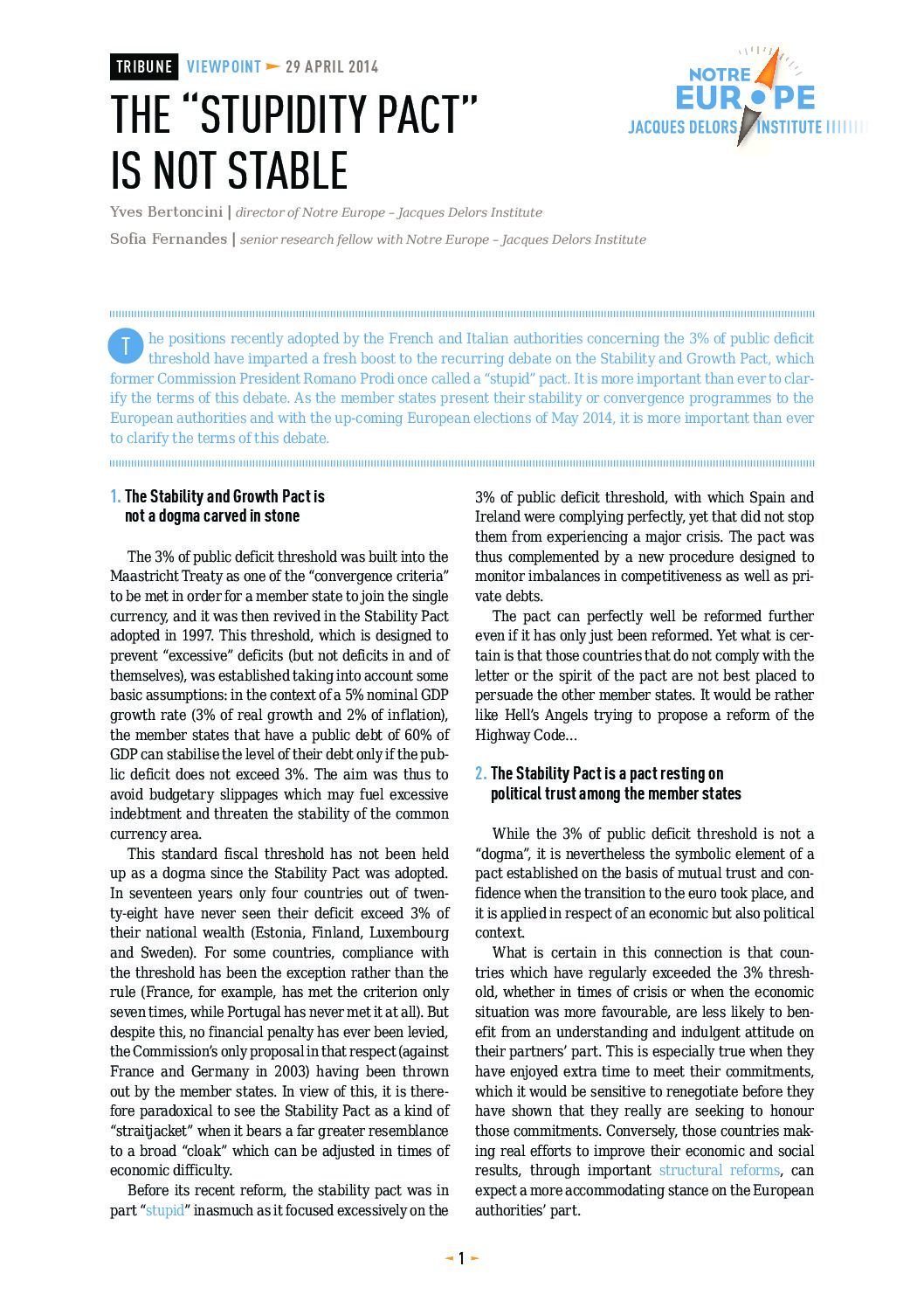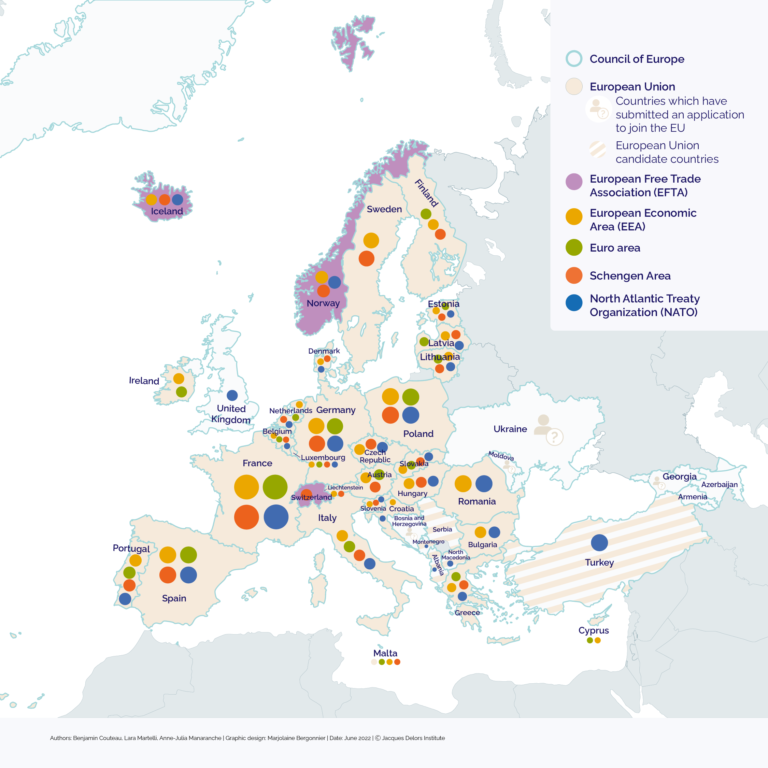Other document
The “stupidity pact” is not stable
As the member states present their stability or convergence programmes to the EU authorities and with the up-coming European elections of May 2014, it is more important than ever to clarify the terms of the debate on the Stability and Growth pact.
The positions recently adopted by the French and Italian authorities concerning the 3% of public deficit threshold have imparted a fresh boost to the recurring debate on the Stability and Growth Pact, which former Commission President Romano Prodi once called a “stupid” pact.
As the member states present their stability or convergence programmes to the European authorities and with the up-coming European elections of May 2014, it is more important than ever to clarify the terms of this debate. It is the purpose of Yves Bertoncini and Sofia Fernandes analysis, based on three complementary statements :
1. The Stability and Growth Pact is not a dogma carved in stone
2. The Stability Pact is a pact resting on political trust among the member states
3. The debate on the Stability Pact is also economic in nature
If the Stability Pact is not completely stable, it is not completely stupid either. Let those countries in difficulty set their economies back on track, let them make choices designed to bring down unemployment and to boost growth – the rest “will be added to them”.
SUR LE MÊME THÈME
ON THE SAME THEME
PUBLICATIONS
The war in Ukraine:
what are the consequences for European organisations?

After Brexit, euro-denominated derivatives transactions should leave the City

The Euro as seen by citizens who do not yet have it

MÉDIAS
MEDIAS
Marine Le Pen might be about to wreck the eurozone

L’Irlandais Paschal Donohoe reconduit à la présidence de l’Eurogroupe

Il y a vingt ans, l’arrivée des premiers euros

« L’hétérogénéité croissante de la zone euro menace sa cohésion »

Pourquoi la sortie de l’euro n’est plus un slogan politique

Andreas Eisl: «Les euros ont permis de comparer les pouvoirs d’achat»

L’impression tenace de s’être fait berner sur les prix avec l’euro

Two decades on, euro can’t shake reputation as price driver

L’euro, une construction encore inachevée

L’euro, une construction encore inachevée

Il faut “retrouver une courbe des taux qui permet de ‘pricer’ l’avenir”

The Brussels Briefing of the Financial Times has taken a look at some of our ideas for the new European Commission

Eulalia Rubio on European economic governance on RTVE

Mario Draghi on the single market and the eurozone : preaching in the desert

Mario Draghi calls for euro area fiscal instrument to fight crises.

Mario Draghi : “The most important area where Europe can contribute positively to growth remains the single market.”

The Euro Area reform – Enrico Letta in El Diaro

The eurozone reform and what the EU can do better – E. Letta in The Federalist

A budget for the euro area ? – Eulalia Rubio in La Croix

Enrico Letta in BergamoNews about the euro crisis and the migratory phenomenon

Pascal Lamy in La Dépêche: “Il faut intégrer davantage la zone euro”

Yves Bertoncini on France Info: Où en est vraiment l’europhophie en Allemagne, PaysBas et Hongrie ?

Enrico Letta in Forces Magazine: “Pour une Europe renouvelée”

Enrico Letta on Public Sénat : Euro, terrorism, migrants, Brexit

Enrico Letta in Challenges about the state of the European Union

Our report “Repair and prepare: growth and the euro after Brexit” in Géopolis

Our report “Repair and prepare: growth and the euro after Brexit” in Financial Times

Pascal Lamy on Le Parisien Magazine: “Faut-il sauver la peau de l’euro ?”

Our report “Repair and prepare: growth and the euro after Brexit” in Les Echos

Our report “Repair and prepare: growth and the euro after Brexit” in Deutsche Welle

Our report “Repair and prepare: growth and the euro after Brexit” in Il Sole 24 Ore

Our report “Repair and prepare: growth and the euro after Brexit” in Reuters

Antonio Vitorino on Observador : Socialistas em busca de nova “arma secreta” para o combate à desigualdade













































